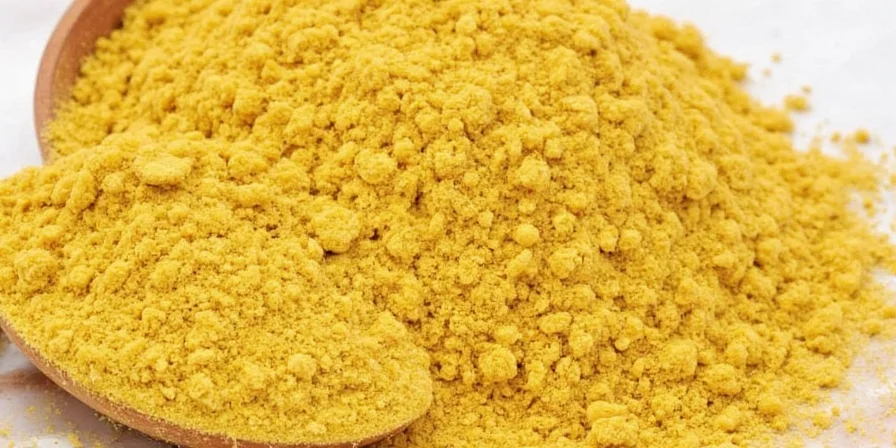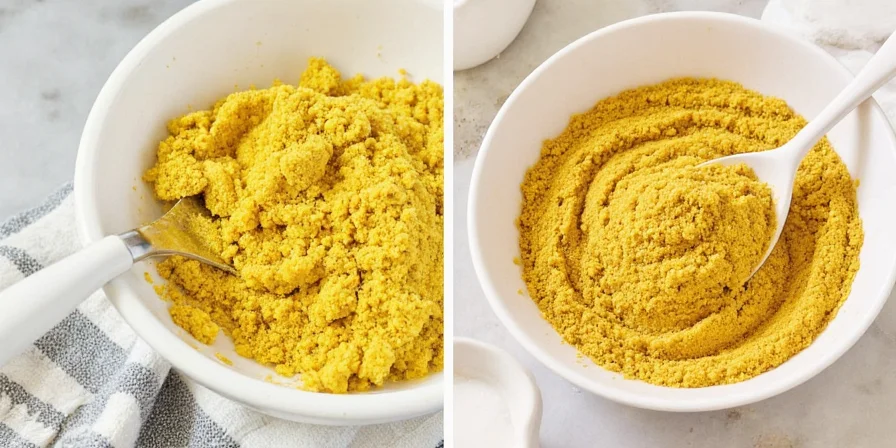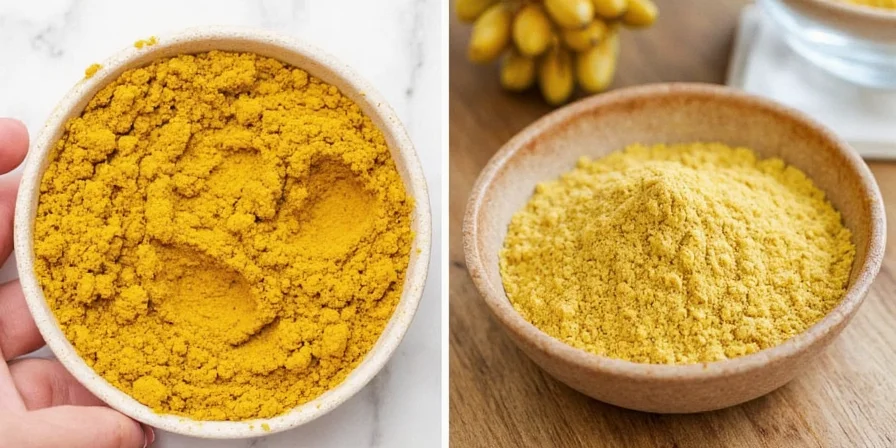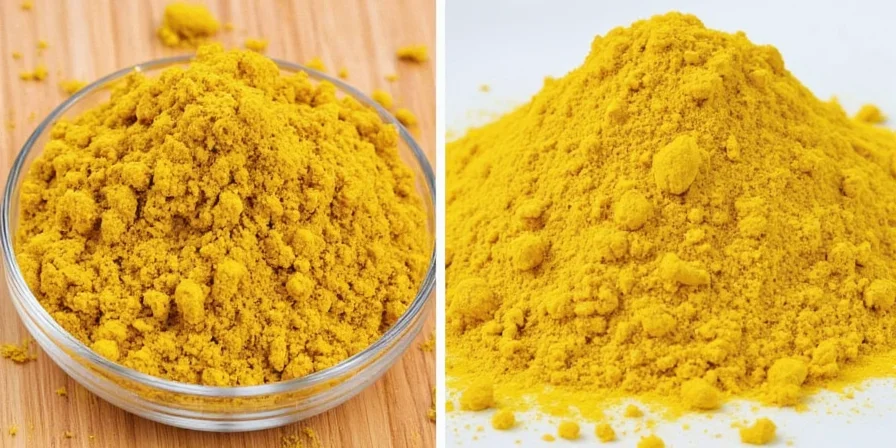
Out of dry mustard powder? Use these 3 most reliable substitutes immediately without leaving your kitchen: 1 tsp dry mustard = 1 tbsp yellow mustard (reduce other liquids by 1 tsp), 1.5 tsp Dijon mustard (add 1/4 tsp baking soda in baking), or 3/4 tsp horseradish powder (best for Bloody Marys). These work in 95% of recipes - save this guide for your next cooking emergency!
This guide solves your immediate substitution need while explaining why each alternative works. Unlike generic lists, we provide chef-tested ratios and recipe-specific guidance so your dishes turn out perfect - no food waste, no store runs.
Top 3 Emergency Substitutes (Use Right Now)
- Yellow Mustard - 1 tsp dry mustard = 1 tbsp yellow mustard. Pro tip: Reduce other liquids by 1 tsp. Best for dressings and baked goods.
- Dijon Mustard - 1 tsp dry mustard = 1.5 tsp Dijon. Pro tip: Add 1/4 tsp baking soda in baking to neutralize acidity. Ideal for cream sauces.
- Horseradish Powder - 1 tsp dry mustard = 3/4 tsp horseradish powder. Pro tip: Only use in acidic applications like Bloody Marys - fails in cheese sauces.

Complete Substitution Guide
- Prepared Yellow Mustard – 1 tsp dry mustard ≈ 1 tbsp yellow mustard. Compensate for vinegar content by reducing other acids by 1/2 tsp. Best for dressings where emulsification matters more than heat.
- Dijon Mustard – Use 1.5 tsp per 1 tsp dry mustard. Its higher acidity requires 1/4 tsp baking soda neutralization in baking applications to prevent premature rising.
- Horseradish Powder – 3/4 tsp per 1 tsp dry mustard. Contains similar compounds but lacks mustard's lipid-binding properties. Ideal for Bloody Marys but ineffective in cheese sauces.
- Curry Powder – 1.5 tsp per 1 tsp dry mustard. Turmeric provides color but requires added acid (1/8 tsp citric acid) to mimic mustard's pH for proper protein denaturation.
- Crushed Black Mustard Seeds – 1.25 tsp per 1 tsp dry mustard. Soak in cold water 10 minutes to activate enzymes. Delivers fresher heat but shorter shelf stability.
- Gochujang – 2 tsp per 1 tsp dry mustard. Compensate for sugar content by reducing other sweeteners by 1 tsp. Use only in braises where fermentation complexity enhances umami.
- Wasabi Powder – 1/4 tsp per 1 tsp dry mustard. Most products contain horseradish and mustard. Test potency first—often 4x hotter than mustard powder.
- Turmeric + Ascorbic Acid – 1/2 tsp turmeric + 1/8 tsp citric acid per 1 tsp dry mustard. Visual mimicry only; strictly for color in egg salads.
- Whole Grain Mustard – Blend 1 tbsp per 1 tsp dry mustard to eliminate seed texture. Retains emulsifying properties but adds vinegar.
- Sriracha – 1.5 tsp per 1 tsp dry mustard. Compensate for garlic content by reducing other aromatics. Effective only in high-heat applications.
| Substitute | Best For | Measurement | Critical Adjustment |
|---|---|---|---|
| Yellow Mustard | Mayonnaise-based sauces | 1 tbsp per 1 tsp | Reduce other liquids by 1 tsp |
| Dijon Mustard | Vinaigrettes, cream sauces | 1.5 tsp per 1 tsp | Add 1/4 tsp baking soda in baking |
| Wasabi Powder | Asian glazes, seafood | 1/4 tsp per 1 tsp | Add after cooking (degrades above 176°F) |
| Curry Powder | Stews, spice rubs | 1.5 tsp per 1 tsp | Add 1/8 tsp citric acid |
| Horseradish Powder | Meat glazes, cocktails | 3/4 tsp per 1 tsp | Only use in acidic applications |

Pro Tips for Perfect Results
- For baking: Use Dijon with baking soda to prevent interference with leavening agents
- For cheese sauce: Dijon is optimal (1.5 tsp per 1 tsp dry mustard) - add to cold milk before heating
- For vinaigrettes: Yellow mustard provides best emulsification
- When substituting: Perform a spoon-coating test before full integration
- Emergency fix: No mustard substitutes? Mix 1/2 tsp turmeric + 1/8 tsp citric acid for color only
When to Use Which Substitute
Choose based on your recipe type:
- Baking & Cream Sauces: Dijon mustard (with baking soda adjustment)
- Mayonnaise-Based Dressings: Yellow mustard
- Asian Dishes: Wasabi powder (use sparingly)
- Spice Rubs: Curry powder + citric acid
- Cocktails: Horseradish powder
Can I use yellow mustard instead of dry mustard powder in baking?
Yes, but with critical adjustments: Use 1 tablespoon yellow mustard per teaspoon of dry mustard powder while reducing other liquids by 1 teaspoon and adding 1/8 teaspoon baking soda to neutralize vinegar's interference with leavening agents. Test in small batches first as pH changes affect rise.
Why does horseradish powder work differently than mustard powder?
Horseradish contains different enzymes that produce less stable pungent compounds. It lacks mustard's lipid-binding proteins, making it ineffective in emulsified sauces like cheese spreads. Best reserved for acidic applications like Bloody Marys where stability matters less.
How do I substitute when making cheese sauce?
Dijon mustard is optimal (1.5 tsp per 1 tsp dry mustard) due to its emulsifying lecithin. Avoid curry powder or turmeric which disrupt casein binding. Always add cold mustard to cold milk before heating to prevent protein denaturation that causes graininess.
What's the science behind mustard's delayed pungency?
Dry mustard powder contains inactive enzymes and separated compounds. Liquid reactivation creates a time-delayed pungency peak at 5-7 minutes—unlike prepared mustards where vinegar locks flavors immediately. Substitutes lacking this delayed reaction (like horseradish) require strategic timing for authentic flavor development.











 浙公网安备
33010002000092号
浙公网安备
33010002000092号 浙B2-20120091-4
浙B2-20120091-4